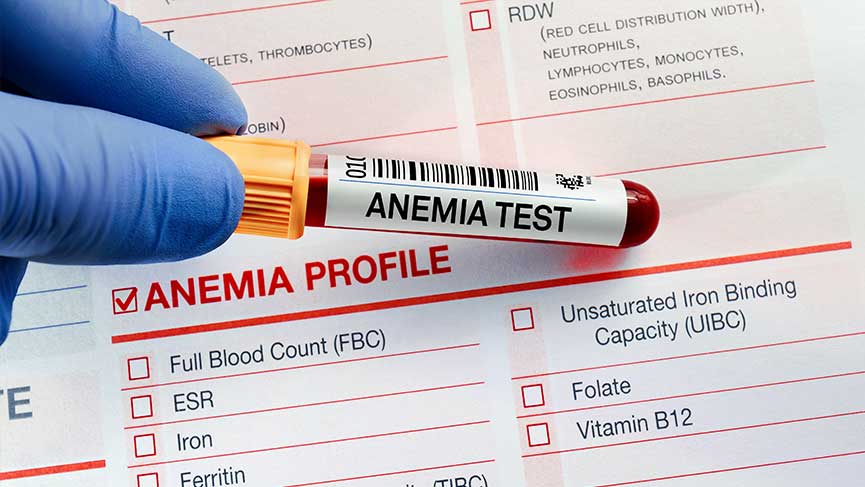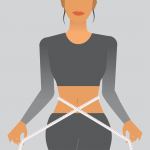Blood is a vital fluid that originates from human beings and its production is only possible by the human body. In order for this fluid, which can be called the fluid of life, to be produced in a healthy way in a balance and order, the vitamins and minerals in its structure must be taken into the body in sufficient amounts. This is only possible with a healthy and balanced diet. In the absence of a healthy and balanced diet or due to various diseases in the body, there may be insufficiency of micronutrients such as iron, vitamin B12 and folic acid, which participate in the structure of the blood and prevent anemia. In this case, the development of the condition called anemia becomes inevitable. Anemia makes it difficult for the body to perform daily functions and manifests itself by causing a number of symptoms in the body. If not recognized or treated in time, more serious health problems may occur.
What are the Causes of Anemia?
The body needs a certain level of iron element for blood production and people need to consume iron-containing foods in their daily diet. As a result of iron deficiency, blood production starts to slow down day by day. As a result, iron deficiency anemia occurs. In addition to iron, there are also types of vitamin deficiency anemia.
Examples include B12 deficiency and folic acid deficiency anemia. As a result of certain diseases, the body’s absorption of these vitamins and iron from the intestines may decrease.
Such diseases, such as celiac disease and diseases of the gastrointestinal tract, can lead to anemia even if sufficient iron is taken into the body, as it cannot be absorbed.
Inflammatory diseases such as ulcers and colon cancer cause unwanted bleeding in the body. As a result, anemia may occur due to iron loss.
In normal cases, the human body is suitable for blood donation every 3 months. This is because the body regenerates itself over a period of 3 months and brings the body’s blood levels to normal levels. Blood donations made without taking these processes and the body’s blood ratio into account can also lead to anemia. Frequent blood tests, especially in newborn babies and children, are also among the causes of anemia.
In women, it is more important than ever to take enough iron into the body during this period to replace the blood lost during menstruation. There is also a possibility of anemia due to blood loss in a severe and prolonged surgery.
Recently, it has been found that stomach reduction surgeries, which have become widespread even if they are not recommended except in serious cases, also trigger anemia. Some hereditary conditions can also lead to anemia.
In countries bordering the Mediterranean Sea, such as our country, Mediterranean Fever Anemia can be seen. Mediterranean Anemia is a type of anemia transmitted with genes.
What are the symptoms of anemia?
Anemia can be graded as mild or severe. It is not always possible to find any symptoms in patients with mild or moderate anemia. However, in cases where the severity of anemia increases, some distinct symptoms appear and the patient’s condition may worsen accordingly.
If these symptoms occur, treatment should be started as soon as possible. Otherwise, the patient may develop life-threatening complications. The nails of anemic individuals are generally more brittle and unhealthy. Cracks may appear at the corners of the mouth and on some parts of the body. The patient’s skin color becomes increasingly pale. The tongue may even become sore and swollen at times.
Chest pain is likely to occur during daily activities. Even in the hot summer months, anemic people have colder hands and feet. There is also the possibility of problems such as lack of concentration and inability to focus. In the later stages, dizziness often occurs due to insufficient oxygen.
Even at rest, the patient feels tired all the time and has muscle aches and pains. This can make it difficult to carry out even daily activities, let alone sports activities. Because of muscle pain, restless leg syndrome is possible, especially at night. Patients with anemia often develop headaches. Although the patient does not change his/her diet, he/she may become weak and shortness of breath may accompany this.
How is Anemia Diagnosed?
Blood count values, which are frequently included among blood tests, enable the detection of values such as hemoglobin and erythrocytes and are sufficient to diagnose anemia. However, in some cases, the doctor may request different tests in addition to this. The doctor may ask about the patient’s medical history and symptoms. A more definitive diagnosis requires a physical examination. During this examination, any bleeding anywhere in the body is checked. The tongue and nails may be examined.
The heart may be listened to see if the heartbeat is fast or irregular, and the lungs may be listened to see if breathing is normal. The abdomen can be examined to check whether the spleen is of normal size. In addition, a stool sample can be taken to investigate gastrointestinal system diseases that can cause anemia, and the stool can be examined for blood in the stool. If blood is found in the stool, endoscopic procedures or other tests may also be ordered.
The purpose of endoscopy is to visualize the mucous membrane lining the lining of the intestine and stomach with a camera to detect bleeding. Colonoscopy can also be performed to examine conditions such as bleeding, growths in the colon mucosa or colon cancer.
How is anemia treated?
Anemia treatment is determined according to the severity of the disease. Iron, B12 and folic acid supplements can be used to eliminate anemia in the initial or middle stages. These supplements can be administered in the form of oral pills or by injection.
Treatment usually continues for 3-6 months depending on the patient’s condition. Iron supplementation in pregnant women is carried out according to the doctor’s recommendation. In some cases, supplements that every patient can take are also recommended for pregnant women, while in some cases different medications should be used.
Externally, iron supplements that individuals will use unconsciously without the advice of a physician are never recommended. Excess iron in the body can damage other organs. In addition to iron, some patients may also experience anemia as a result of B12 or folic acid deficiency. In these patients, B12 or folic acid supplements are administered in the same way.
In some severe cases, blood supplements, also called replacement therapy, may be needed. As a result, there are many types of anemia and many treatment methods and these treatments are carried out according to the type of anemia and the doctor’s recommendations. In most cases, the treatments are successfully completed and the patient continues to live the rest of his/her life normally.
= =Page content is for informational purposes only. Always consult your doctor for diagnosis and treatment.= =









